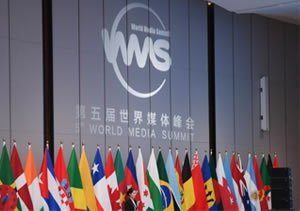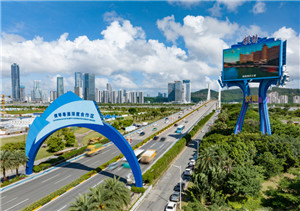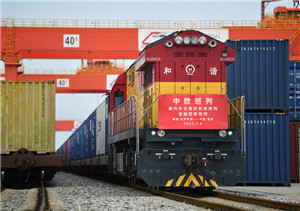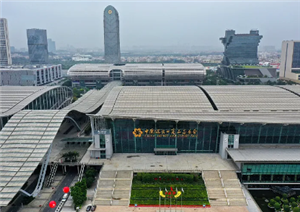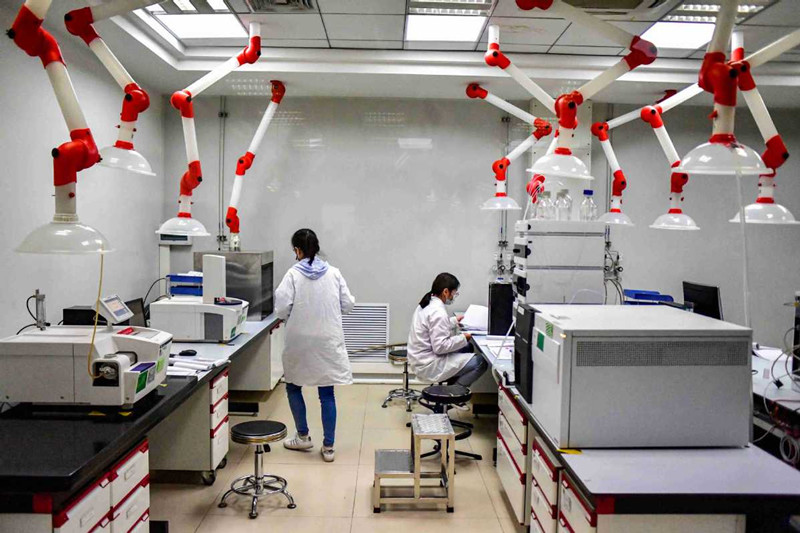
Two employees work in a drug research and development laboratory in Dongguan, Guangdong province. [Photo by ZHAN YOUBING/FOR CHINA DAILY]
South China's Guangdong province aims to boost annual revenue from its biopharmaceutical and health sector to over 1 trillion yuan ($141.55 billion) by 2027 from 663.8 billion yuan last year, according to an action plan issued on Wednesday to promote high-quality development of its biopharmaceutical sector.
According to the plan, Guangdong aims to lift the total annual revenue of biopharmaceutical enterprises above a designated size — which has grown by 10 percent on average since 2018 — to 500 billion yuan by 2027.
The province tops the country in terms of the number of pharmaceutical manufacturing permits, traditional Chinese medicine enterprises, and medical apparatus and instrument enterprises.
The action plan has also stressed more efficient cross-department and inter-regional coordination for the biopharmaceutical industry, according to Wang Xi, deputy governor of the province.
Public hospitals will be assessed on their support for clinical trials on innovative pharmaceuticals, and medical apparatus and instruments. Mutual recognition of ethical review reports among medical institutions in the province will be promoted, Wang said at a news conference in Guangzhou, the capital of Guangdong province, on Wednesday.
The plan calls for the expansion of the Hong Kong and Macao Medicine and Equipment Connect program. The program allows medicine and medical apparatus and instruments that are already applied in the Hong Kong and Macao special administrative regions to be used in designated medical institutions in nine Guangdong cities in the Guangdong-Hong Kong-Macao Greater Bay Area after approval.
Efforts will also be made to create a national institution to manage biopharmaceutical intellectual property rights in the Shenzhen part of the Hetao Shenzhen-Hong Kong Science and Technology Innovation Cooperation Zone.
Cities in Guangdong will be encouraged to extend policy and financial support all along the chain of pharmaceutical and medical apparatus and instrument innovation.
Approval for new drugs and medical apparatus and instruments and their application in hospitals will be facilitated and accelerated.
A team formed by 15 provincial departments and local governments will be established, and efforts will go toward attracting investments from outside the province and facilitating existing enterprises, said Tu Gaokun, director of the industry and information technology department of the province.
"Guangdong's strong policy impetus and industrial development potential are well-matched with the focus of Thermo Fisher on meeting the business priorities of local partners in fields such as pharmaceuticals and biopharmaceuticals," said Miguel Faustino, president of Thermo Fisher Scientific China.
"We will continue to drive local innovation in China with global technology, empower Guangdong's biopharmaceutical industry ecosystem, and jointly promote the high-quality development of the regional biopharmaceutical industry," he added.



